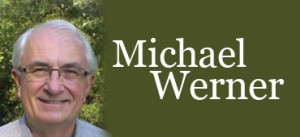Think Denmark

“The good life is one guided by reason and motivated by love.” —Bertrand Russell
We all know that discourse in the United States today is ugly, as civility has been replaced by bitter reactive battles. Humanist activists are indeed involved in many of these battles, whether dealing with renewed forms of racism, economic exploitation, environmental destruction, religious wars, discrimination against seculars, or even sexism and misogyny in our own movement.
We are right to actively work on these important issues. We can’t allow the earth to be despoiled, we can’t sweep misogyny under the rug, and we have to expose the hidden racism that permeates political discourse.
At the same time, let’s not lose sight of our overall goal of building a world of greater human and global welfare. All of our specific activism is ultimately in the service of creating a better, more civilized society.
Societies whose citizens share a modest level of trust in each other are the most successful and happiest. Look at Denmark, the happiest country in the world according to the UN’s World Happiness Report and the one with the most mutual trust. This is a realistic goal for the United States, despite Denmark’s greater homogeneity. While pursuing our activism we need to build a society of trust, a society where forgiveness, compassion, solidarity, and redemption are possible—a society where we heal the wounds of the past and restore mutual trust, communication, and, dare I say, even love. Too sappy? I think not. I think Denmark.
Even the supreme rationalist Bertrand Russell knew that love is at the heart of our best motivations.
Our tribal nature always pulls us toward polarizing conflicts, while the higher calling of civilization demands that we listen to others, build relations, and really see the inherent worth of other people. In Europe, following the philosophy of Jürgen Habermas, there is widespread support for using “communicative action” to patiently develop lines of communication among different actors in society. The fractures within our own lives, the earth, and our society can heal, but we are caught in the dilemma of being strong activists and, at the same time, needing to bind the wounds of our culture. I don’t think the question is one of making a choice between being the educator/diplomat or the ardent activist. We have to do both and bring about a higher civil culture than the present day mosh pit we find ourselves in.
With so many issues confronting us, it’s easy to become reactive and lose sight of our overall goal, which is not church and state separation or economic justice. Our overall goal is making the good life possible for ourselves and others.
The secular revolution means that we are becoming surprisingly mainstream, and that requires a reorientation of our identity in response to the new challenges that await us. A different set of skills is required for being an activist versus developing a caring and trusting higher culture. I am guilty of the following easy response, “I can’t deal with those jerks on the right and I will fight them in court.” The harder tack is to ask ourselves, “How can I open up a conversation on the issue and bend the needle towards mutual understanding, trust, and advancement of core values?” It sometimes seems so fruitless or even hurtful to your cause to enter into dialogue. It feels like giving in to the wrong when we know we’re in the right, which we may very well be, but so what? Do you want to be right or do you want to be effective?
The Internet, talk radio, and oppositional television programming have changed the ways in which our culture deals with conflict and this has resulted in depersonalized relations, the culture wars, and the commonplace language of hatred and violence. Civility, trust, healing, and redemption need nurturing in all of us.
Let’s continue to stand for justice, freedom, equality, and reason, and at the same time stand for compassion, understanding, forgiveness, tolerance, trust, and love. If we don’t, history will not be kind to us.
